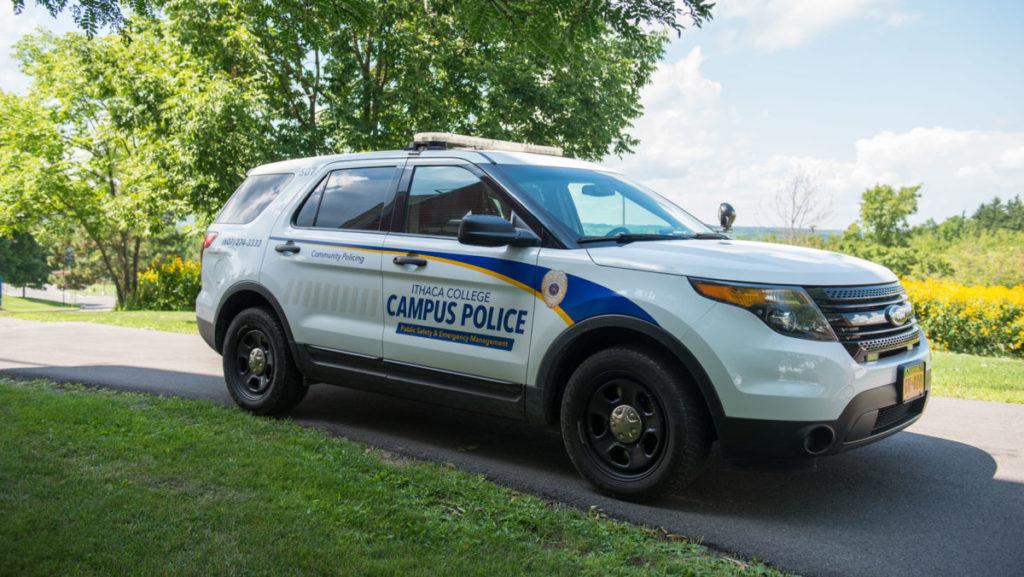The Office of Public Safety and Emergency Management released its Annual Security and Fire Safety Report to the Ithaca College community Oct. 1. According to the report, rape and domestic violence cases have steadily increased from 2016.
The report contains statistics from 2016 to 2018 about crimes and fires across the college. The report defines rape as penetration — with either a body part or object — of the vagina or anus without consent. It does not matter how slight the penetration is. In 2018, there were 13 reported rape cases on campus. In 2017, there were 11 total on campus, 10 of which occurred in residential facilities. In 2016, there were eight rape cases that occurred on campus in residential facilities. On the New York City, Los Angeles and London campuses, there were zero rape cases reported between 2016 and 2018.
Officials from the college said they are not overly concerned with the increase. Public Safety Director Bill Kerry said the higher numbers are indicative of more people reporting the crimes.
“Our biggest role is making sure that people feel supported, that things are investigated fairly,” Kerry said.
Title IX Coordinator Linda Koenig said she believes the increase in rape cases is a result of more students feeling comfortable with reporting. She also said an incident may have been reported in 2018, but it might have occurred in months or years prior.
“There is a stronger culture of reporting on campus and nationally now,” Koenig said. “We are communicating to people that there is a place to make a report.”
In addition to rape increases, there was an increase in domestic violence cases. According to the report, the code of conduct definition of domestic violence is threats of violence or acts of physical intimidation, violence or coercion between romantic partners or individuals who were formerly romantic partners. There were zero cases in 2016 and six in 2017. But in 2018, there were six on campus, and of those six, five occurred in residential facilities. In 2018, the Los Angeles campus had one case of domestic violence but zero in 2016 and 2017. The New York City and London campuses saw no domestic violence cases in 2016 and 2018. There was one case in 2017 on the New York City campus.
Junior Hope Gardner is the president of IC Strike, an organization that focuses on education and awareness surrounding sexual assault and violence. The club also aims to create a space for survivors of sexual assault to feel supported.
“There’s a huge stigma behind talking about it, but we’re hoping that’s part of what our organization will be able to do for people who are not at a place yet where they can talk about their experiences,” Gardner said.
Stalking cases have not seen a significant increase since 2016. There were eight on campus in 2016, followed by nine in 2017 and seven in 2018. The New York City, Los Angeles and London campuses have had no reported stalking cases between 2016 and 2018.
Arrests for drug law violations increased between 2017 and 2018. There were 10 on campus, and five occurred in residential facilities in 2018. In 2017, there were eight on campus and four in residential facilities. Between 2016 and 2017, the numbers decreased from 16 on-campus arrests to eight. This trend is also seen in the burglary category. There were 12 on-campus burglaries in 2018, seven in 2017 and 12 in 2016. All 12 in 2016, six in 2017 and eight in 2018 were in residential facilities.
From 2017 to 2018, there were decreases in both liquor law violations and drug law violations that led to disciplinary referrals. On campus, there were 432 liquor law violations in 2017 and 321 drug law violations. In 2018, there were 312 liquor law violations and 286 drug law violations.










